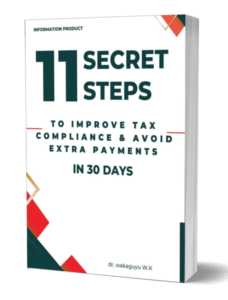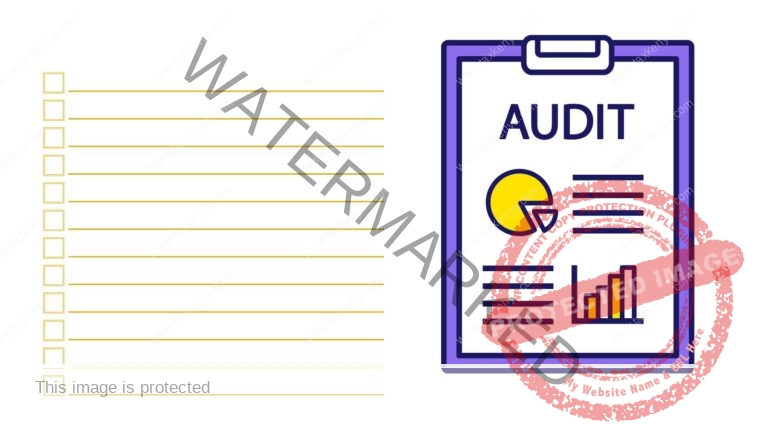People often ask whether individuals who offer blogging services are expected to pay income tax in Kenya or not. According to the Income Tax Act in Kenya Cap 470, any income that is derived or accrued in Kenya is subject to income tax unless it is specified as exempt.
The income tax is reported for twelve months as the year of income. In Kenya, the year of income for all individual taxpayers (bloggers included) is from 1st January to 31st December.
Therefore, since most bloggers trade as individuals or as sole proprietors, their year of income would ordinarily be from January to December. Hence, the blogger’s earnings are subject to personal income tax.
What income is subject to income tax?
All the income that bloggers derive or accrue from Kenya is taxable in Kenya. This is income from writing articles, advertisements, managing websites, developing websites, editing articles, endorsements, online and physical training, etc.
Also, the Income Tax Act requires that Kenyan residents, for taxation, must report their worldwide income. This means that whatever income a Kenyan tax resident earns for overseas work, such as writing, editing, managing, and developing websites, must be reported in Kenya, and the applicable taxes paid.
Kenya Tax Residents
According to the Income Tax Act Cap 470, for a person to be considered a resident for taxation purposes in Kenya, there are two important considerations.
The following conditions in the Income Tax Act determine whether a person is considered a resident of tax purposes in Kenya:
a) Permanent residency
A person has a permanent home in Kenya and was present in the country for any period in that year of income.
b) Period in Kenya during the financial year
A person does not have a permanent home in Kenya but was present in Kenya for
- 183 days or more in that year of income or
- An average of more than 122 days during that year of income under consideration and in the two preceding years of income.
It is important to remember that Kenyan residents pay tax at lower tax rates.
Total income tax
Bloggers are self-employed and their income is personal income tax. Hence, they established the income tax payable similar to any employed person. However, in case of personal income tax, expenses incurred to generate the income are allowed. However, there must be a direct association between the expenses and the income. This is referred to as matching expenses to income.
Some expenses that may be allowed when establishing bloggers’ taxable income are transport, communication, website hosting expenses, domain registration and renewals, editing expenses, registration in websites to pitch for work, bank expenses, expenses, marketing expenses etc.

How is the income tax paid?
First, to pay tax in Kenya, they need a personal identification number (PIN) from the Kenya Revenue Authority (KRA). For any Kenyan to register for tax, they need their National Identification (ID) card, among other documents. Foreigners get PINs using alien cards which are issued after acquiring work permits.
For any person whose tax amount in one year is more than kshs 40,000, the law requires that the person pay tax on an instalment basis. There are four instalments in a year of income. Each instalment is twenty-five per cent paid as follows:
- By 20th April – 25 %
- By 20th June – 25 % (total 50 %.)
- By 20th September – 25 % (total 75 %)
- By 20th December – 25 % (total 100 %)
Any variance may attract penalties and interest if the person does not pay the expected tax percentages. Any balance of tax pending at the end of the financial year must be paid by the 30th day of April the following year. If it is not paid, there will be penalties and interest.
How to establish the instalments
Instalments taxes are tax estimates. There are two methods of estimating instalments.
- Prior year basis where the taxpayer multiplies prior-year tax by 110% to establish current year tax.
- Current year basis where the taxpayer establishes actual tax amounts payable.
Please note that for persons whose income is not well established, the current year’s basis is the best option.
Determination of gross income tax (end of year)
After closure of the year of income, a person is expected to draw a schedule of expenses and income. The difference between the two is the taxable profits unless there are adjustments for such items as depreciation of computers, etc.
The profits are subjected to current PAYE tax bands and taxed as employment income. Since an individual’s income tax is accounted for annually, annual PAYE bands will be used. After establishing the gross PAYE, the person will establish the net PAYE.
Net income tax
From the gross PAYE, the person will establish the net PAYE by deducting the following.
- Tax relief.
- Insurance relief.
Amount to pay
Once the person has established the net PAYE, they will deduct the following to establish the amount due.
- Tax credits from previous tax periods.
- Any withholding tax that may have been deducted at the source by clients.
- All instalment taxes are paid within the year
If any amount is due, the person is expected to remit the amount by the last day of April. Otherwise, the person will pay penalties and interests.

Tax returns
The blogger is expected to file annual tax returns by the end of the 6th month after the year of income, which is from January to December. Hence, the annual tax returns are filed by the last day of June. Please note that person is also expected to account for any other income that they may have earned during the year of income.
Tax compliance
The following acts may be non-compliance with the provisions on income tax in Kenya and will attract fines, penalties and interest:
- Failure to register for the PIN.
- Failure to maintain an account of all sales and purchases.
- Failure to pay tax on instalments basis where applicable.
- Failure to estimate tax instalments properly.
- Failure to file annual tax returns when due.
How to improve tax compliance
Most bloggers in Kenya may not be tax compliant because they lack tax information. Please note that it is only those persons who are exempted from paying income tax who should not pay income tax.
Everyone else is expected to pay income tax as long as they earn from kshs 1 to whatever amounts. However, some persons end up not paying tax because of personal relief.
The following are some steps that bloggers can take to improve tax compliance. Remember that bloggers can invest any money saved elsewhere, and being compliant is cheaper than being non-compliant.
The following are eleven steps that bloggers can take to improve income tax compliance.
- Get a PIN.
2. Maintain an account of all sales and purchases.
3. Collect all receipts for expenses incurred.
4. Collect all payments before the end of the year.
5. Pay tax on instalments basis where applicable.
6. Estimate your tax instalments properly.
7. When you get paid, pay your taxes before anything else.
8. Get up to date relevant tax information.
9. File annual tax returns when due.
10. Learn to use the i-tax platform.
11. Pay all due taxes to clean your tax ledger.
This post covered income tax for bloggers. We hope that the post will help improve income tax compliance. Let us know your thoughts in the comments.
Dr Wakaguyu
taxkenya@gmail.com







